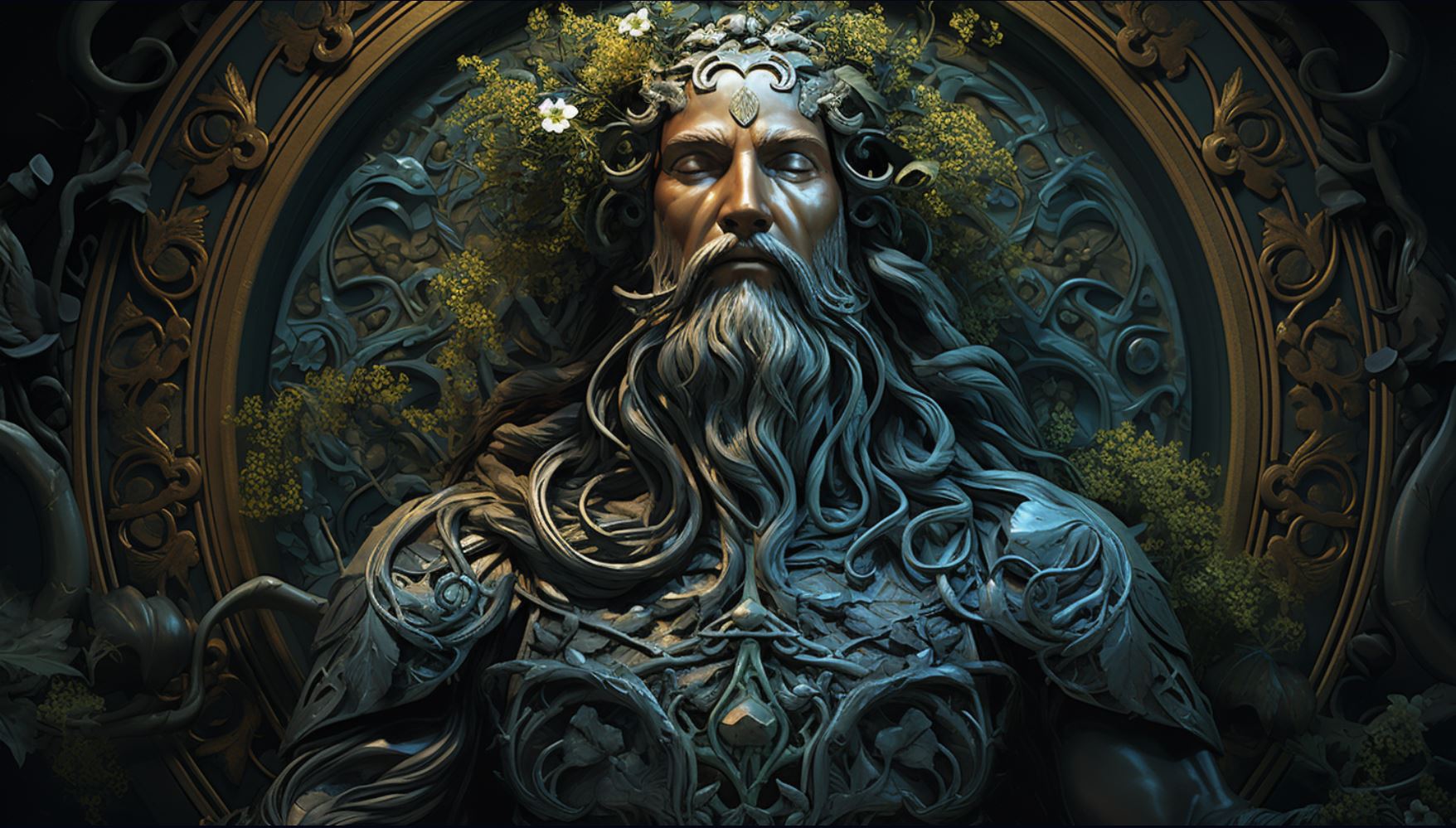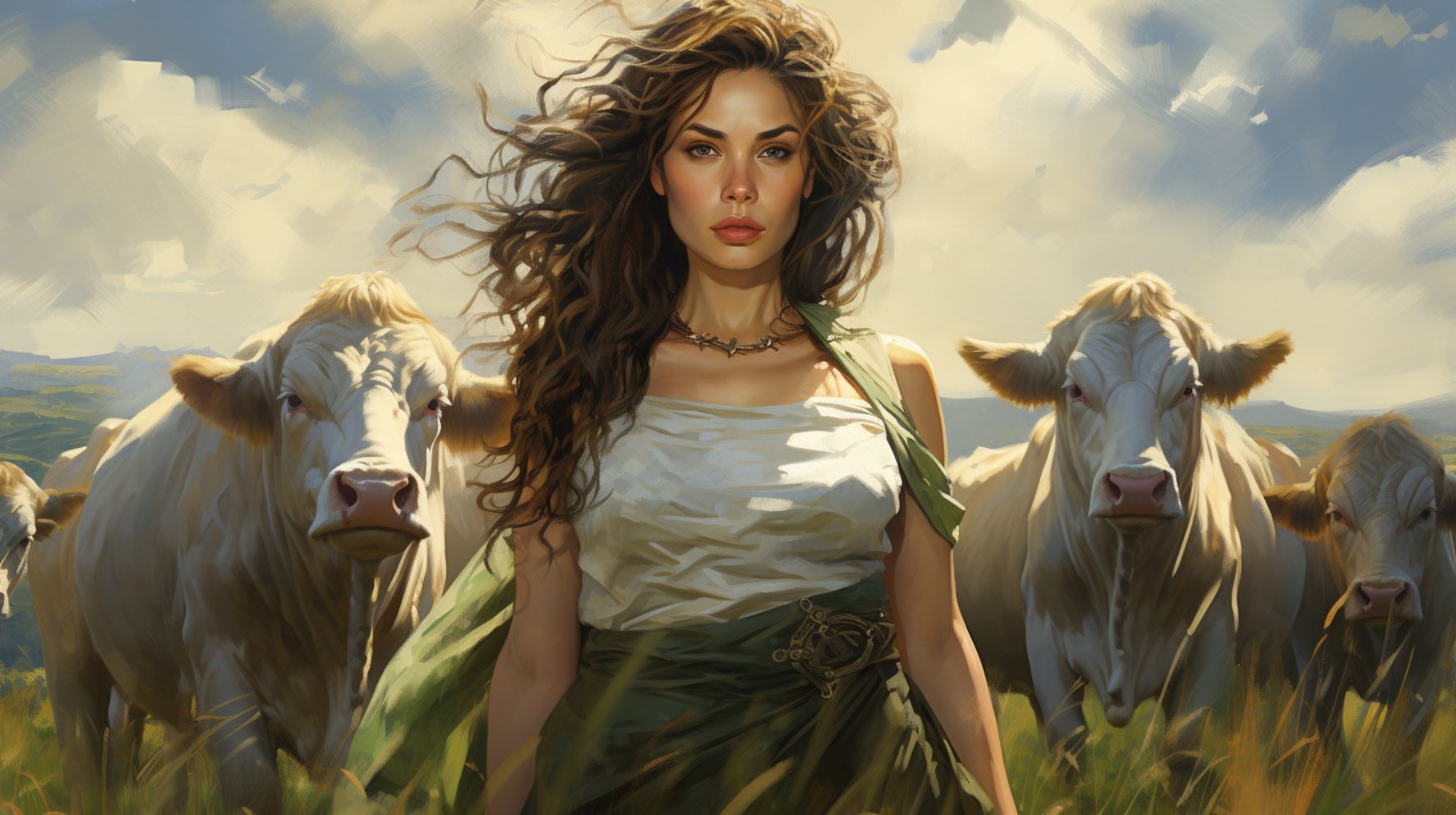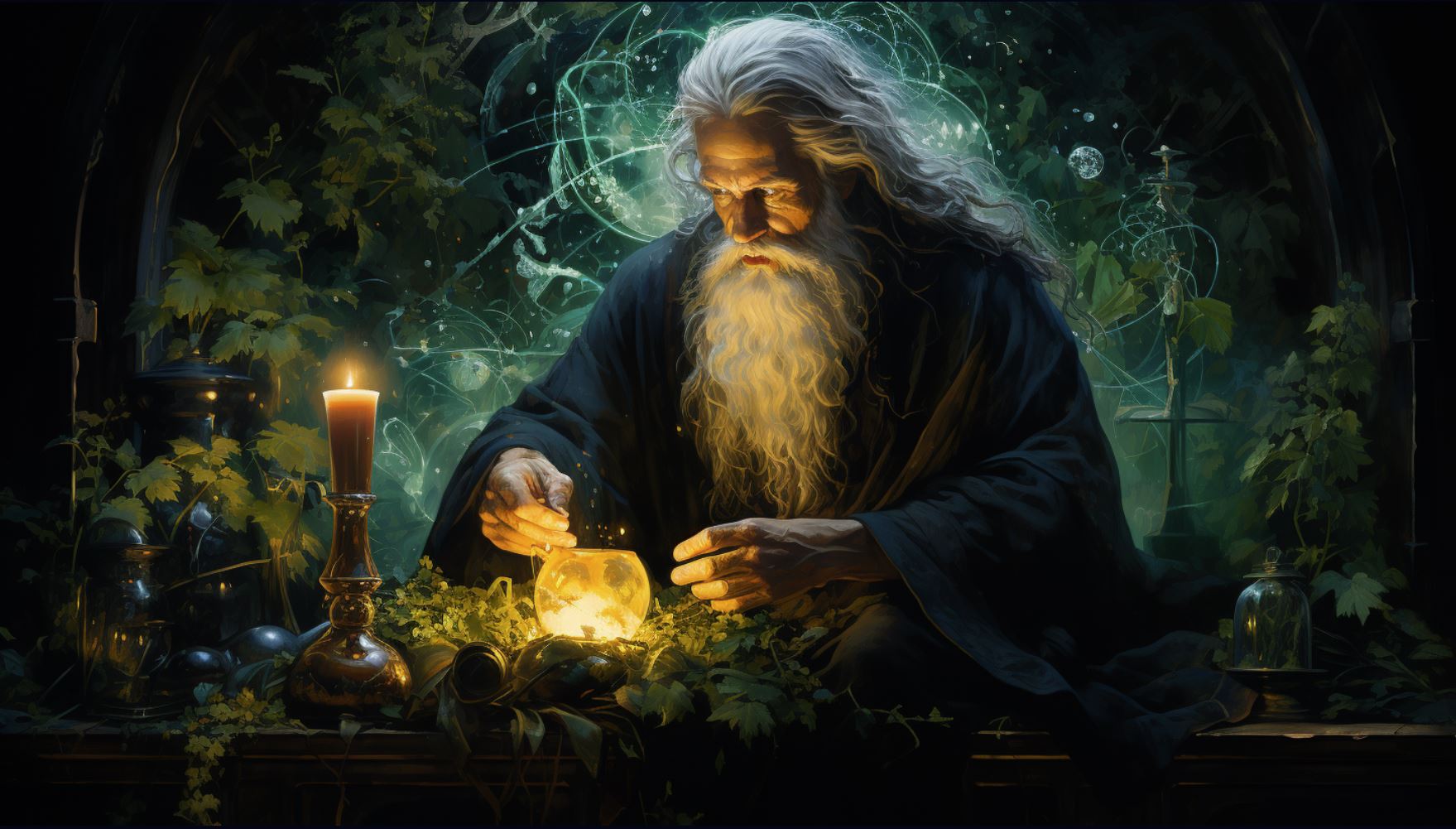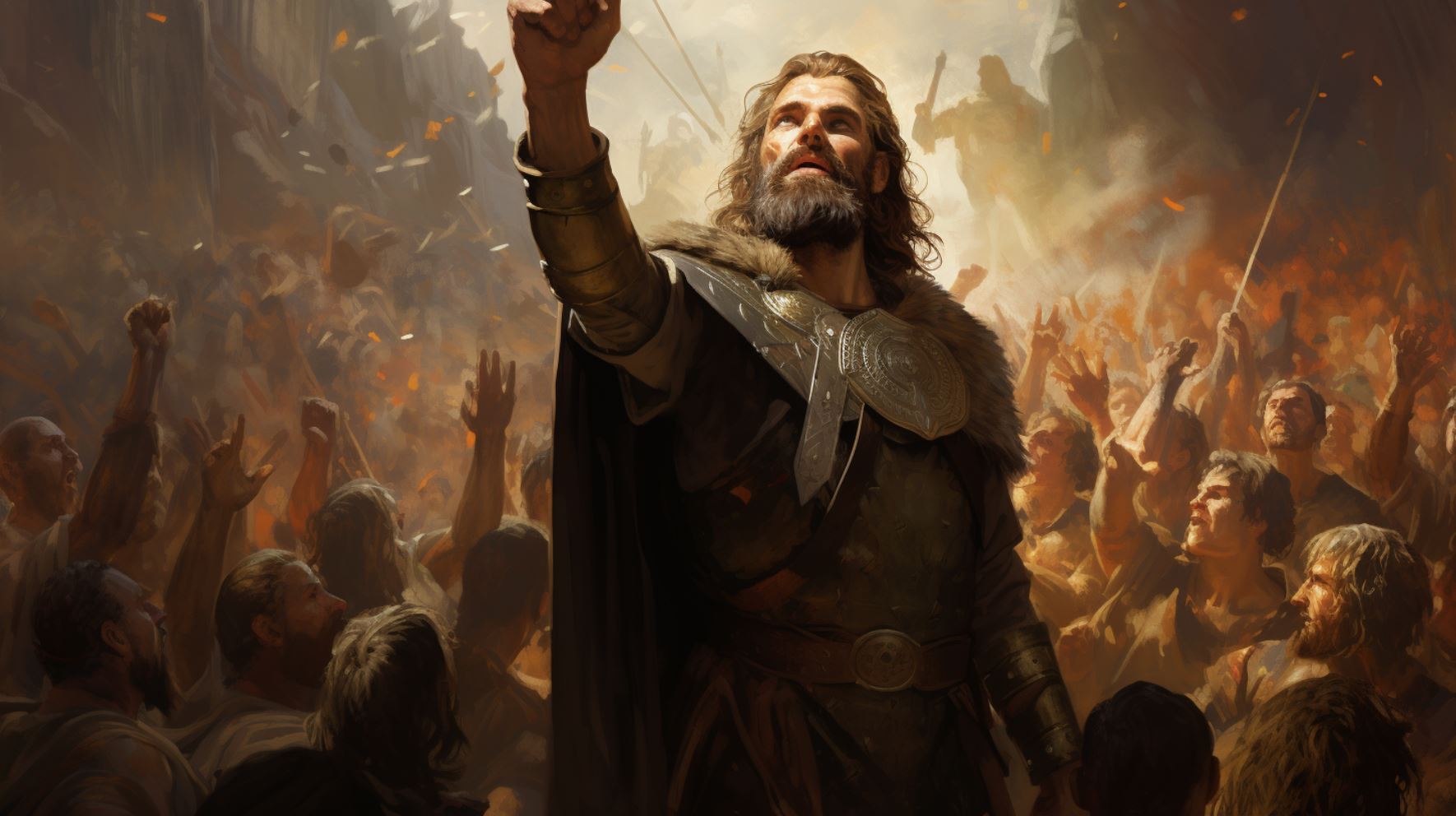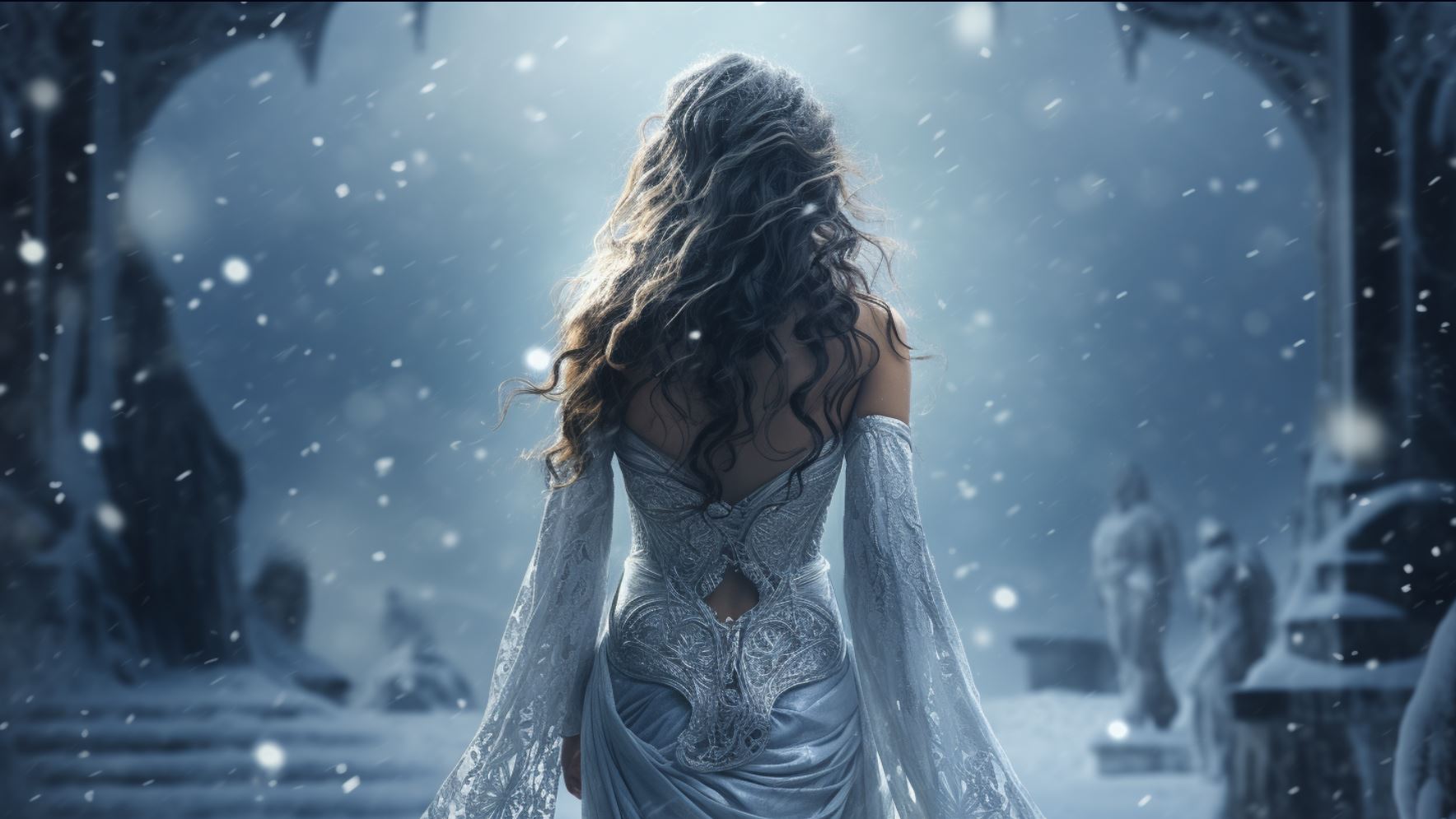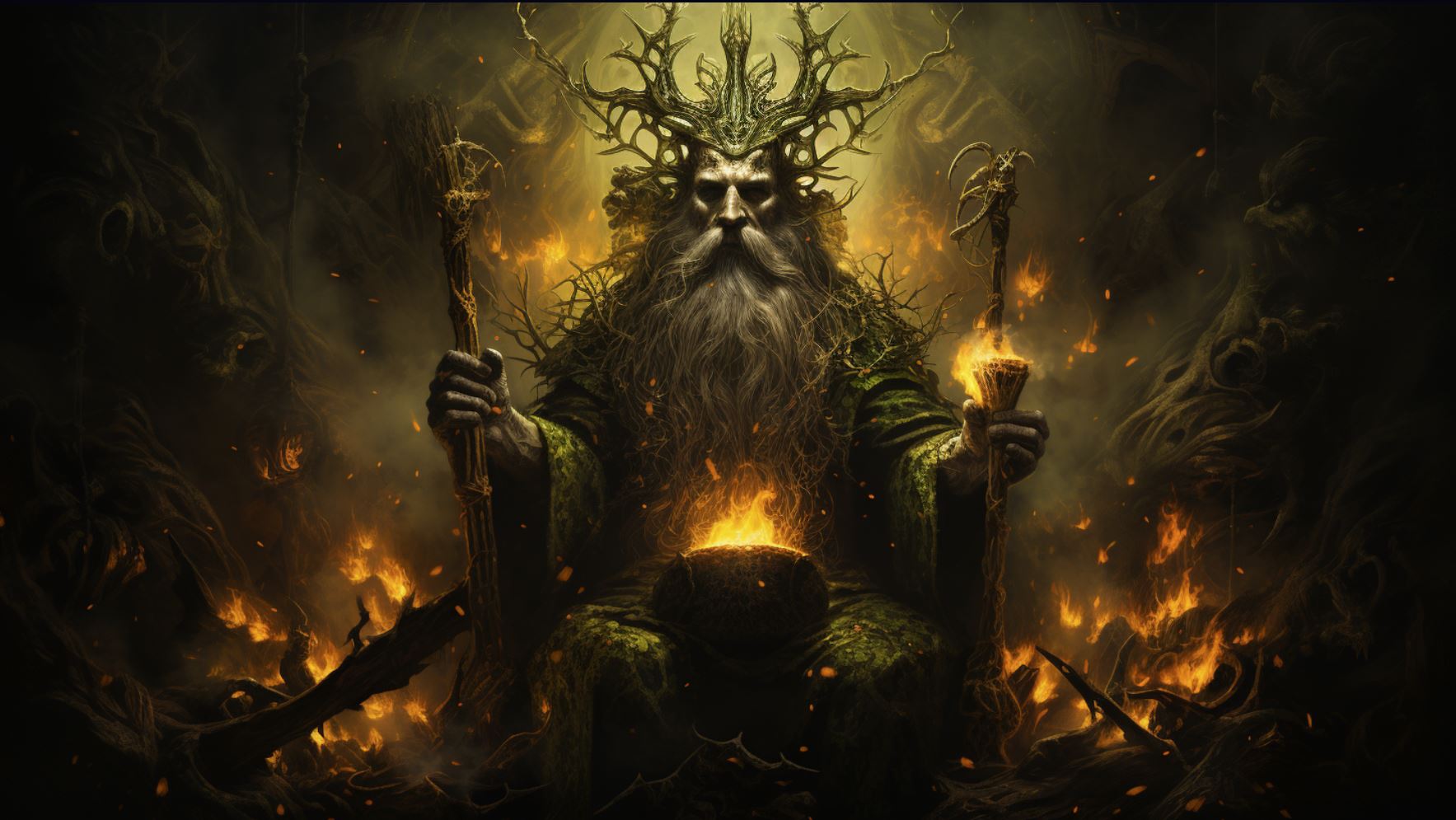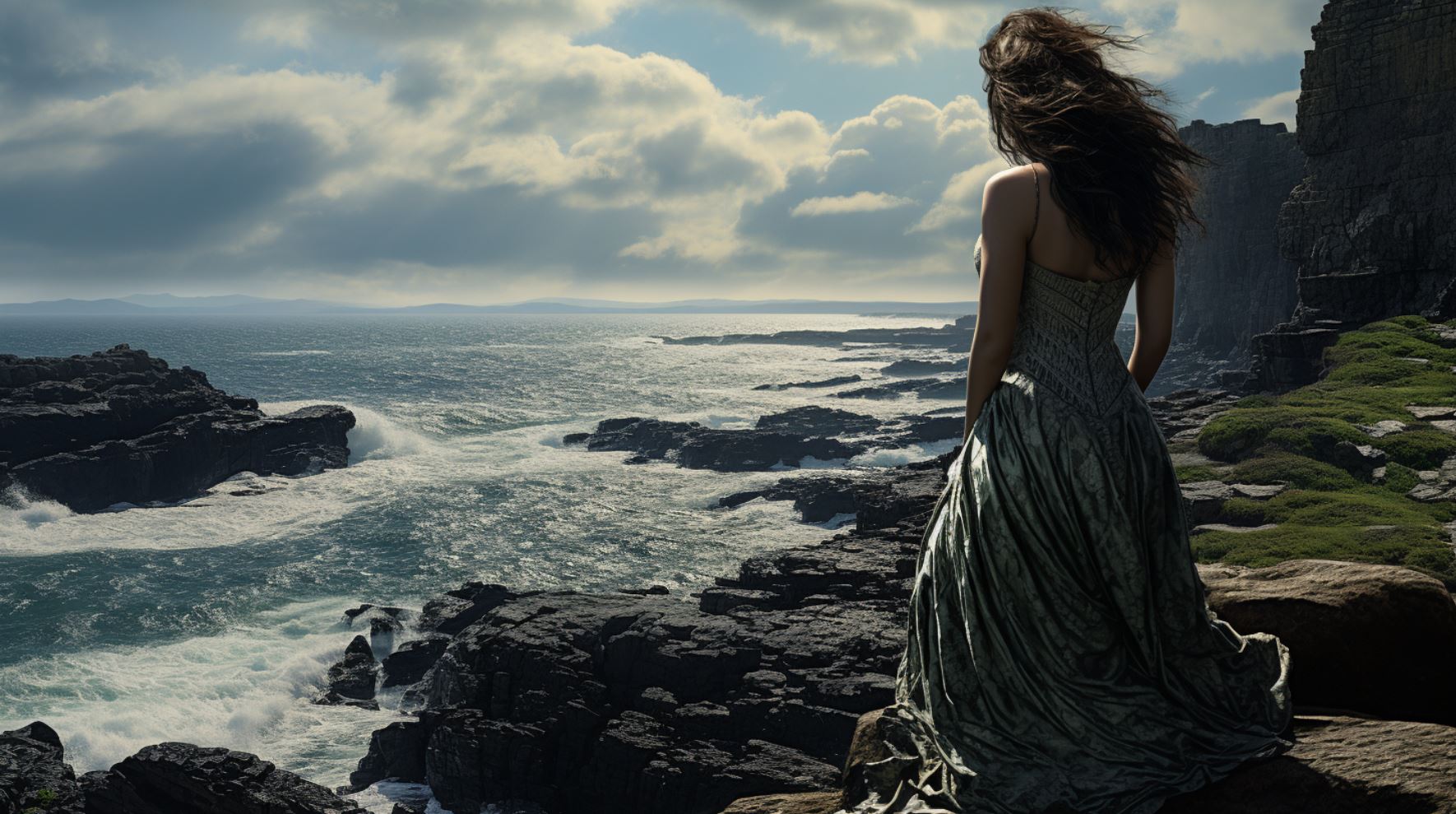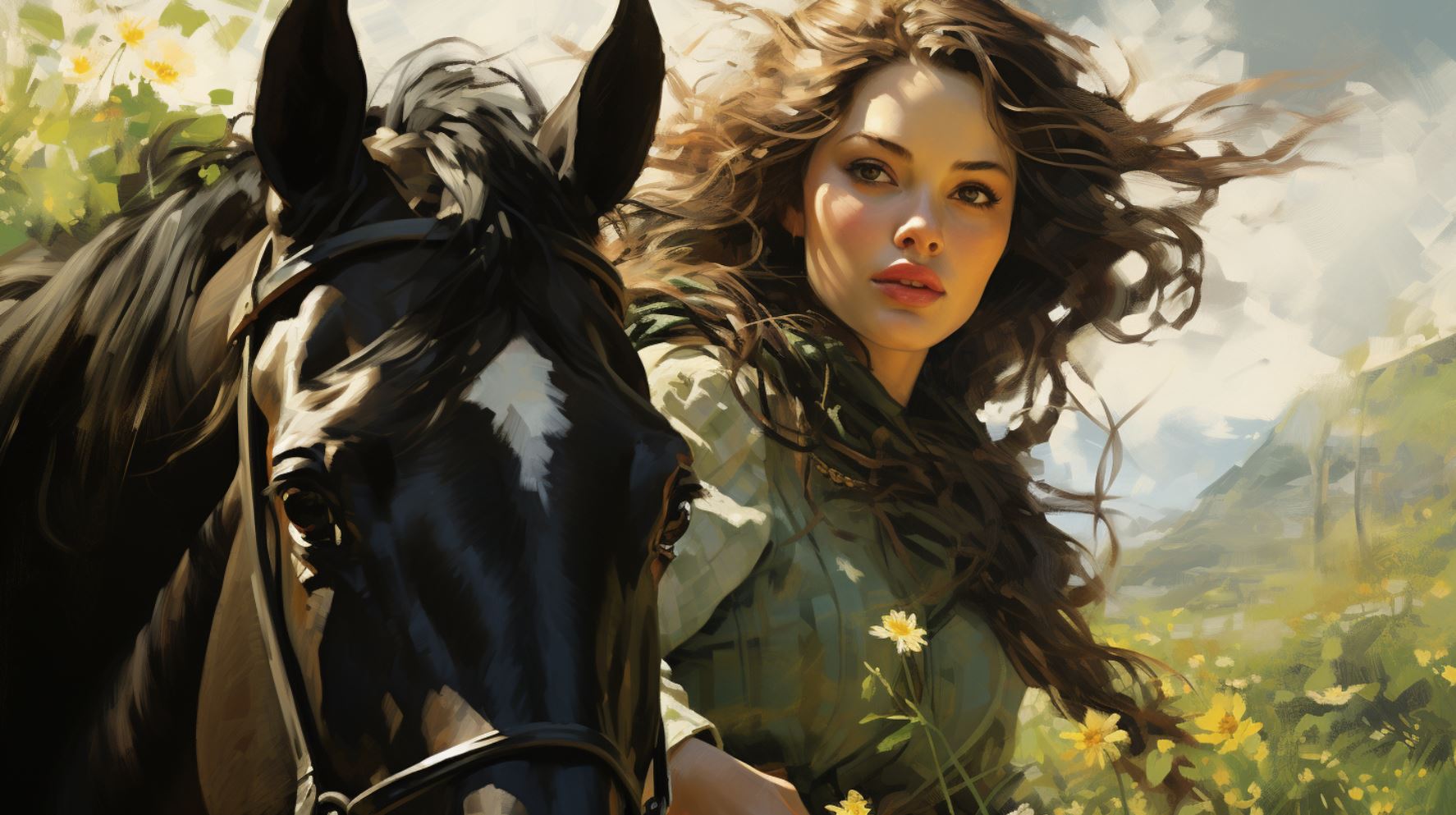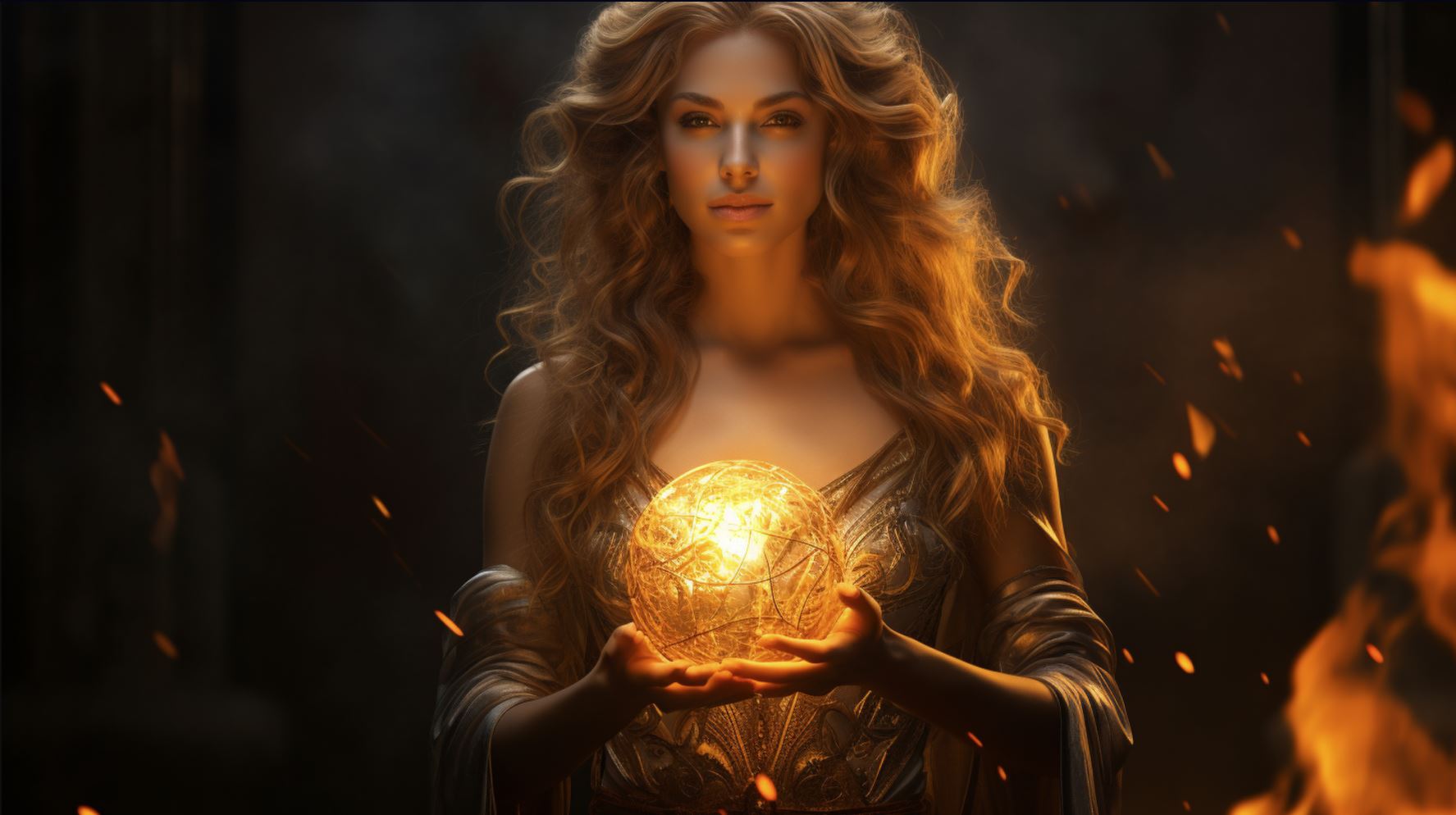The Dagda God: Unveiling the Mysteries of the Celtic Mythology
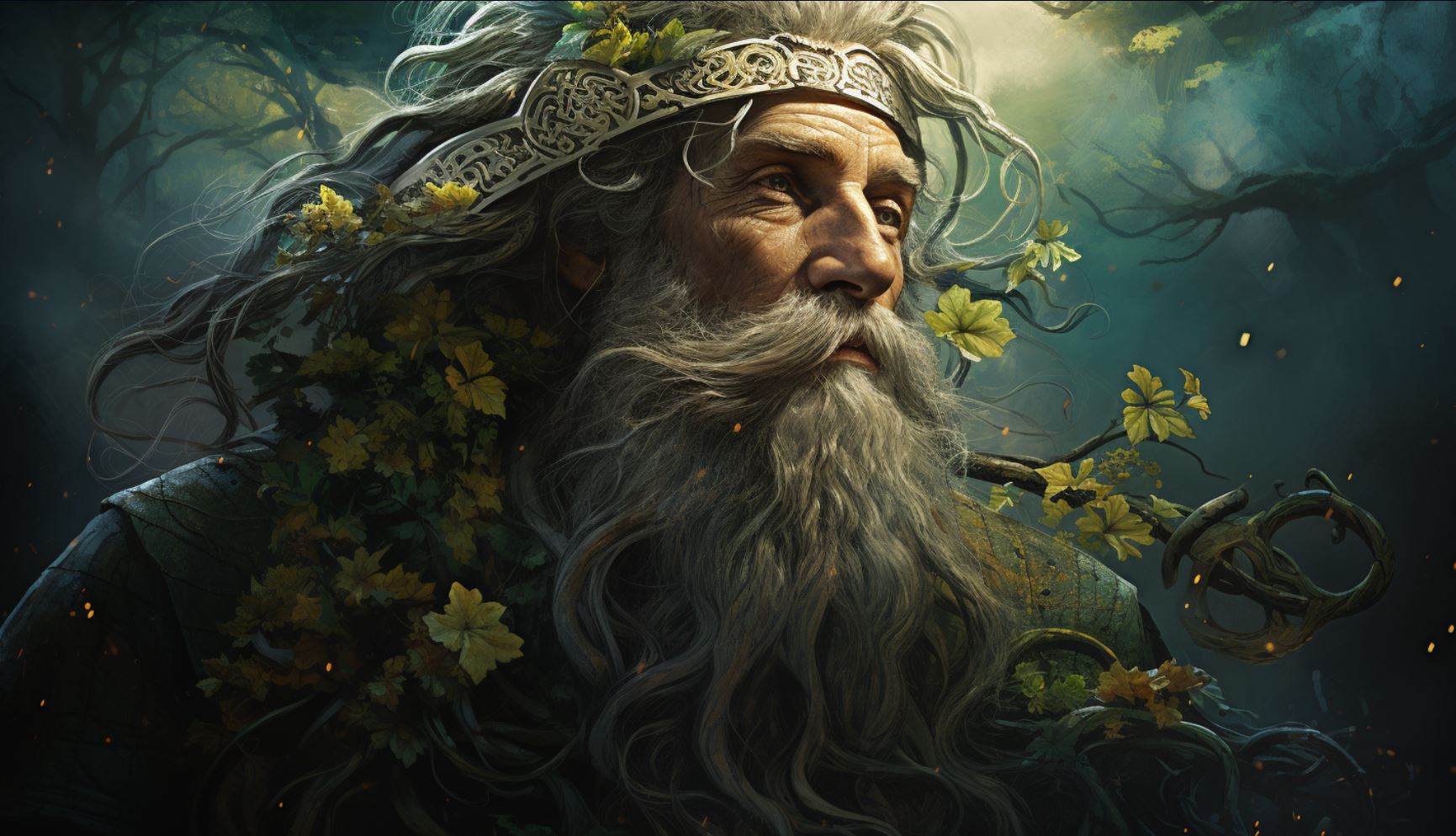
The Dagda god, a prominent figure in Celtic mythology, holds significant power and influence. As a leader of the Irish mythological group known as the Tuatha Dé Danann, the Dagda is revered for his many abilities and possessions.
He possesses a bottomless cauldron, ever-bearing fruit trees, and a magical harp. Known as the god of life and death, agriculture, fertility, magic, and druidology, the Dagda’s colossal stature and role as chief of the Tuatha Dé Danann further solidify his importance.
Exploring the mysteries and legends surrounding the Dagda offers a fascinating insight into Celtic mythology.
The Dagda God: Unveiling the Celtic Mythology
The Dagda god, a prominent figure in Celtic mythology, holds a significant place among the mythical Irish gods known as the Tuatha Dé Danann. As we delve into the rich tapestry of Celtic folklore, we embark on a journey to unravel the enigmatic persona of The Dagda.
The lore surrounding The Dagda reveals his multifaceted nature as a deity of immense power and influence. Often referred to as the god of life and death, agriculture, fertility, magic, and druidology, The Dagda’s dominion spans across various aspects of existence.
The Mysterious Origins of The Dagda
Within the realm of Celtic mythology, The Tuatha Dé Danann stand as a mythical group of Irish gods, and The Dagda assumes a prominent role as their leader. His towering presence and revered status set him apart, positioning him as a pivotal figure within their pantheon.
Born from the tales of ancient Ireland, The Dagda’s legendary exploits and extraordinary powers have captivated generations. In our quest to understand the roots of this deity, we unravel the intricate history of the Tuatha Dé Danann, exploring their mythical origins and deep-seated significance within Irish folklore.
Exploring the Role of The Dagda
Steeped in myth and symbolism, The Dagda’s role transcends mortal comprehension. Regarded as a deity with immense influence, he governs the ebb and flow of life itself. His embodiment of both creation and the natural forces that govern existence makes him a central figure in Celtic mythology.
Furthermore, The Dagda’s mastery over the cycle of life and death bestows upon him an unparalleled authority. From his powerful club, capable of both granting life and dealing death, to his inexhaustible cauldron of abundance, The Dagda’s divine relics demonstrate his omnipotence.
Unleashing The Dagda’s Divine Powers
The Dagda’s possession of supernatural artifacts magnifies his status as a deity of immense power. One such artifact is the cauldron of abundance, never empty, providing endless prosperity to those in its presence.
Additionally, his mighty club possesses the ability to manipulate life and death, a testament to his authority over the cosmic balance.
Perhaps the most captivating of The Dagda’s possessions is his enchanted harp, which serves as a conduit through which he can summon the seasons and control the hearts of men.
With a mere touch, melodies resonate, shifting the very fabric of reality, and beckoning forth the changing tides of nature.
A Complex Relationship: The Dagda and Morrígan
The tapestry of The Dagda’s life is interwoven with the enigmatic Morrígan, the goddess of war. Their intricate relationship, defined by love and fierceness, showcases the complexities of Celtic mythology.
Morrígan’s dark and foreboding presence contrasts with The Dagda’s role as a deity representing life and fertility.
The melding of their energies generates a dynamic relationship that fuels the intriguing tales and mythical encounters within Celtic folklore. The consequences of their union shape the very paths of Irish mythology.
As we embark on this voyage into the mysteries of The Dagda, the undisputed chief of the Tuatha Dé Danann, we delve deeper into the legacy and significance he holds in the realms of Irish arts, life, and seasons.
Unveiling the layers of Celtic mythology surrounding The Dagda reveals a pantheon of gods intertwined with the fabric of ancient Ireland.
Exploring the Origins of The Dagda
Delve into the intriguing origins of The Dagda, a prominent figure in Celtic mythology. Unravel the tales surrounding the Tuatha Dé Danann, the mythical Irish gods, and discover their pivotal role in the ancient lore.
The Tuatha Dé Danann: Mythical Irish Gods
The Tuatha Dé Danann, revered as the legendary deities of Irish mythology, hold a significant place in the stories of ancient Ireland. These divine beings are known for their extraordinary powers and connections to various aspects of life and nature.
Their origins and arrival in Ireland are shrouded in mystery, adding to their mythical allure.
According to the legends, the Tuatha Dé Danann descended from the goddess Danu and arrived in Ireland in a great magical mist.
They brought with them advanced knowledge and skills, enriching the land with their divine presence. Their influence can be seen in areas such as magic, druidology, and the arts.
The Role of The Dagda in Celtic Mythology
Within the Tuatha Dé Danann, The Dagda stands as a prominent and revered figure.
Uncover the significant role he played in Celtic mythology, revered not only for his immense strength but also for his leadership and wisdom.
As the chief of the Tuatha Dé Danann, The Dagda was a respected and consulted god, despite not carrying the title of king.
His immense physical stature and commanding presence gained him the admiration and reverence of both gods and mortals. Known as the god of life and death, agriculture, fertility, magic, and druidology, The Dagda held immense power and influence over various aspects of existence.
It is said that The Dagda had countless offspring and lovers, showcasing his prominence and life-affirming nature. His residences in Brú na Bóinne further solidify his connection to the land and its abundance.
By exploring the origins and role of The Dagda, we gain a deeper understanding of the complexities and richness of Celtic mythology, offering a glimpse into a world filled with gods, magic, and ancient traditions.
The Divine Powers of The Dagda
The Dagda, a prominent figure in Celtic mythology, possesses extraordinary abilities and sacred artifacts that symbolize his divine powers. Let us delve into the realm of his remarkable feats and possessions, unraveling the essence of his being.
The Incomparable Achievements of The Dagda
The Dagda stands apart for his unparalleled accomplishments, revered as the god of life and death, agriculture, fertility, magic, and druidology. His influence extends to the realms of nature and the supernatural, commanding respect and admiration from both deities and mortals alike.
The Cauldron of Abundance: Endless Prosperity
Among the Dagda’s sacred treasures is a marvel that brings inexhaustible abundance—the legendary Cauldron of Abundance. This mystical vessel never runs empty, symbolizing the nourishment and prosperity it bestows upon those in its presence.
Its powers feed the Tuatha Dé Danann and bless the land with fertility, ensuring bountiful harvests year after year.
The Mighty Club: Life and Death in The Dagda’s Hands
In the skilled grip of the Dagda lies his potent weapon—the Mighty Club. With this mighty cudgel, he holds the power to both take life and restore it. Its swings can lay low adversaries on the battlefield, yet its touch can also revive fallen warriors from the brink of death.
This club represents the delicate balance between the forces of life and mortality that the Dagda wields with unwavering precision.
This testament to The Dagda’s divine powers stands as a testament to his immense influence within Celtic mythology, a figure not to be overlooked or underestimated.
Through his relentless pursuit of abundance and protection, the Dagda shapes the very fabric of the natural and supernatural worlds, leaving an indelible mark on the ancient tapestry of Irish folklore and tradition.
- The Dagda’s incomparable achievements elevate him to the status of god of life and death, agriculture, fertility, magic, and druidology.
- The Cauldron of Abundance, one of the Dagda’s sacred artifacts, represents everlasting prosperity and ensures a constant flow of nourishment and abundance.
- The Mighty Club, another embodiment of the Dagda’s power, possesses the ability to bring both life and death, making it a potent tool on the battlefield and beyond.
The Enigmatic Harp of The Dagda
The harp of the Dagda, a divine artifact of great mystery in Celtic mythology, holds a significant place in his repertoire of magical possessions.
This section delves into the captivating lore surrounding the harp, showcasing its enchanting powers and the celestial melodies it produces.
The Magic and Melody of The Dagda’s Harp
The Dagda’s harp possesses an otherworldly charm, with its ethereal strings that resonate with divine energy. Legends speak of its mesmerizing melodies, capable of soothing troubled souls and captivating all who listen.
The enchanting music produced by this sacred instrument graces the ears of gods and mortals alike, evoking an array of emotions and transporting listeners to realms beyond imagination.
Controlling Men and Seasons with Musical Mastery
Astonishingly, the harp of the Dagda holds not just the power to captivate hearts but also to influence the very fabric of existence itself.
With a mastery of its strings, the Dagda can invoke the shifting of seasons, dictating the passage of time and nature’s rhythms. His melodious command over the harp’s notes has the ability to tame or awaken the spirits of men, creating harmony or discord as he sees fit.
According to ancient accounts, the Dagda used his harp during battles, playing melodies that could inspire bravery in his warriors or strike fear into the hearts of his foes. The instrument’s harmonic vibrations resonated through the battlefield, swaying the tides of war in his favor.
With ‘The Enigmatic Harp of The Dagda,’ one delves into the magical realms of Celtic mythology, captivated by the melodies and powers of this divine instrument. This section explores the captivating magic and control found within the strings of the Dagda’s harp, uncovering a world where music transcends mortal realms and influences the very essence of life.
The Complex Relationship Between The Dagda and Morrígan
The Dagda, a revered Celtic god, had a complex relationship with Morrígan, the sinister goddess of war. Their connection transcended the boundaries of love and power, intertwining myths and mortal encounters.
The Sinister Goddess of War and The Dagda’s Love Affair
Morrígan, often depicted as a fearsome goddess associated with battle, caught the eye of the Dagda. Despite her ominous nature, the god found himself drawn to her. Their love affair became legendary, defying expectations and illuminating the intricate aspects of both their beings.
The Dagda’s irresistible charm and magnetic presence captivated Morrígan, igniting a passionate liaison that disrupted the balance of the mythical world. Their union transcended mere mortal comprehension, embodying the complexity of desire and divine destiny entwined.
Mythical Encounters and Consequences
The divine alliance between the Dagda and Morrígan led to mythical encounters that shaped the path of Celtic mythology. Their joined forces on the battlefield unleashed destructive power, altering the course of battles and determining the fate of warriors.
However, the consequences of their relationship extended beyond warfare. Their entwined destinies influenced the tapestry of life, initiating transformative events and catalyzing change. The intricate dance between these two deities wove a thread of intricate tales that resonated throughout the ancient land.
Exploring the complex relationship between the Dagda and Morrígan unveils a tapestry of passion, power, and consequence. As two influential figures in Celtic mythology, their entanglement showcases the intricate dynamics that shape divine connections and the enduring impact they have on the mortal realm.
Legacy and Significance of The Dagda
As the Chief of Tuatha Dé Danann, The Dagda holds a revered position in Celtic mythology. His influence extends beyond his divine powers and possessions. Explore the multifaceted legacy he left behind.
The Chief of Tuatha Dé Danann: A Revered Figure
The Dagda stands as an iconic figure among the Tuatha Dé Danann. Despite not bearing the title of king, he garners immense respect and consultation from his fellow gods. His role as the group’s leader embodies his leadership capabilities and wisdom, making him a revered figure in Irish mythology.
The Dagda’s Influence in Irish Arts, Life, and Seasons
The impact of The Dagda stretches far and wide, leaving an indelible mark on various aspects of Irish culture. In the realm of arts, he is celebrated as a patron, inspiring musicians, poets, and storytellers through his supernatural harp.
The seasons, too, dance to the tune of his harp, as he holds the power to summon and control their transitions, further emphasizing his significance in the cyclical nature of life.
Beyond the cultural sphere, The Dagda’s influence permeates everyday life. He is associated with fertility, agriculture, and the bountiful harvests that sustain communities. Farmers and agriculturalists look to him for blessings and abundance, recognizing his role in ensuring prosperity and sustenance.
The Great God of Fertility, Magic, and Druidology
Central to The Dagda’s legacy is his embodiment of essential concepts in Celtic mythology. He is revered as the god of fertility, symbolizing the life-giving forces of nature. His association with magic and druidology showcases his mastery over mystical arts and esoteric knowledge.
Through his powers and roles, The Dagda embodies the interconnectedness of life and death, the cyclical nature of seasons, and the balance between abundance and scarcity. His overarching influence on fertility, magic, and druidology solidifies his position as a central figure in Celtic mythology.











